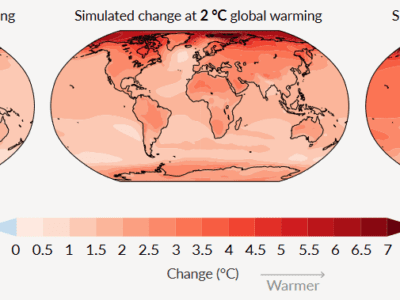An important step toward scientific integrity
Yesterday, together with his executive order on stem cell research, President Obama issued a memorandum to the executive branch on scientific integrity. (Dan noted the news of the pending decision here.) The memorandum is just a starting point, but it is a very good one. It elevates the issue to a high profile, assigning the Director of the Office of Science and Technology Policy (John Holdren, if the Senate ever acts on his nomination) “the responsibility for ensuring the highest level of integrity in all aspects of the executive branch’s involvement with scientific and technological processes.” For now, that specifically means the Director is to develop recommendations for Presidential action within the next four months.
The memorandum lays out a set of principles to guide the Director’s recommendations, notably including that agencies should make public the scientific findings considered in decisionmaking, and should have procedures for identifying situations in which scientific information may be compromised and ensuring scientific integrity.
The principles are good ones, but of course the devil is always in the details. Hopefully, Holdren will take up this assignment with verve, and make strong substantive recommendations. They should include the creation of “dissent channels” where agency scientists can express concerns about scientific integrity without going public as whistleblowers; procedural limits on certain kinds of contacts between political appointees and career agency scientists (designed to prevent the Julie MacDonald problem); and a commitment not to use the “deliberative process privilege” under the Freedom of Information Act to hide reports or recommendations by agency scientific staff from public view (as the Bush administration did in this example).
One place Holdren might look for ideas is the Science for Policy Project panel convened by the Bipartisan Policy Center. The panel, which includes, among others, Donald Kennedy, with stints as president of Stanford University, FDA administrator, and editor of the journal Science; University of Texas law professor Wendy Wagner; and John Graham, formerly the head of OMB’s Office of Information and Regulatory Affairs. It plans to issue a more extensive and specific report this summer. Hopefully that will come in time to inform Holdren’s recommendations to the President. For now, the panel has offered three recommendations which encourage the administration to take a broad look at the systematic problem of making effective use of science in policy decisions. The first is the most important:
The Administration needs to develop ways, when developing regulatory policies, to explicitly differentiate, to the extent possible, between questions that involve scientific judgments and questions that involve judgments about economics, ethics and other matters of policy.
Knowing the difference between scientific judgments and policy judgments, and revealing those distinctions to the public, is fundamental to achieving scientific integrity. It is too often overlooked, however, by those on both sides of policy conflicts who know the “right” answer at the outset.







Reader Comments